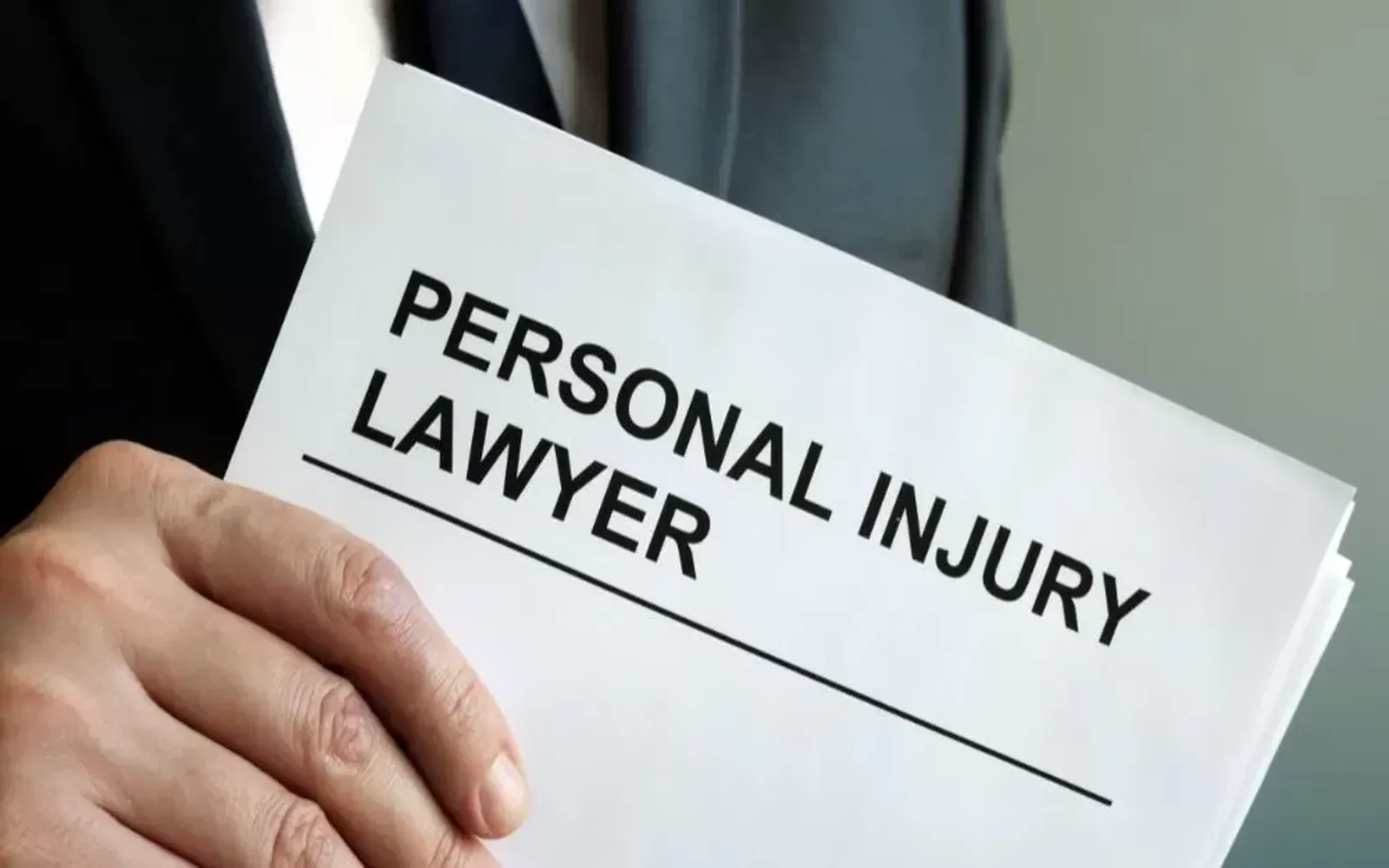Why You Need a Personal Injury Lawyer & How to Choose One
Understanding the Importance of a Personal Injury Lawyer
Personal injuries can happen to anyone, at any time, and often lead to significant physical, emotional, and financial consequences. Whether it’s a car accident, slip and fall incident, or a workplace injury, navigating the aftermath can be overwhelming. This is where a personal injury lawyer steps in. They specialize in helping victims of negligence or wrongdoing seek compensation for their injuries and losses. Here, we’ll discuss why hiring a personal injury lawyer is essential and how to choose the right one for your situation.
Why You Need a Personal Injury Lawyer
1. Expertise in Personal Injury Law
Personal injury lawyers possess specialized knowledge of the laws and regulations surrounding personal injury claims. They understand the complexities of legal terminology, procedural rules, and the nuances of state laws that can significantly impact your case. This expertise becomes invaluable when seeking rightful compensation, as personal injury laws can vary greatly from one jurisdiction to another.
2. Maximizing Compensation
One of the primary reasons to hire a personal injury lawyer is their ability to maximize your compensation. Insurance companies often aim to minimize their payouts, which can leave victims under-compensated for their injuries. A skilled lawyer knows how to accurately evaluate your claim, factoring in medical expenses, lost wages, pain and suffering, and future rehabilitation costs. They are adept at negotiating with insurance adjusters to ensure that you receive a fair settlement.
3. Navigating the Legal Process
The legal process following a personal injury can be complex and daunting. From filing the initial claim to gathering evidence, and potentially going to trial, the steps involved can be overwhelming for someone without legal experience. A personal injury lawyer can guide you through this process, ensuring that all deadlines are met, paperwork is filed accurately, and your rights are protected at every stage.
4. Litigation Experience
While most personal injury cases are settled out of court, there are instances where litigation becomes necessary. If your case requires going to trial, having a personal injury lawyer with courtroom experience is essential. They can present your case effectively, advocate on your behalf, and counter any arguments made by the opposing party. This level of representation greatly increases your chances of a favorable outcome.
5. Contingency Fee Structure
Most personal injury lawyers work on a contingency fee basis, meaning they only get paid if you win your case. This arrangement allows you to pursue legal action without the burden of upfront costs. If you don’t receive compensation, you won’t owe your lawyer anything. This structure incentivizes lawyers to work diligently on your behalf and achieve the best possible results.
How to Choose the Right Personal Injury Lawyer
1. Assess Experience and Specialization
When choosing a personal injury lawyer, it’s essential to assess their experience and specialization in personal injury law. Look for a lawyer who has a proven track record in handling cases similar to yours. For example, if you were injured in a car accident, seek a lawyer with extensive experience in vehicular accident claims. Their familiarity with the nuances of your specific case type can influence the outcome significantly.
2. Research Reputation and Reviews
Reputation matters in the legal field. Research potential lawyers by reading reviews and testimonials from past clients. Websites like Avvo, Martindale-Hubbell, and Google reviews can provide insights into a lawyer’s reputation, communication style, and success rates. Additionally, consider asking for recommendations from friends or family who have had positive experiences with personal injury lawyers.
3. Schedule Initial Consultations
Many personal injury lawyers offer free initial consultations. Take advantage of these meetings to discuss your case and assess how the lawyer interacts with you. During the consultation, pay attention to their willingness to listen, their communication style, and their ability to answer your questions comprehensively. This initial interaction can provide valuable insight into whether you will feel comfortable working with them throughout your case.
4. Evaluate Communication and Accessibility
Effective communication is crucial in any attorney-client relationship. Ensure that the lawyer you choose is accessible and willing to keep you informed throughout the process. Discuss their preferred methods of communication and how often you can expect updates. A good lawyer will prioritize keeping you in the loop and ensure that you understand every step of your case.
5. Discuss Fees and Costs
Understanding the fee structure is essential before hiring a personal injury lawyer. While most operate on a contingency fee basis, it’s important to clarify the percentage they will take if you win your case and whether there are any additional costs you might be responsible for. Transparency regarding fees will help avoid any unpleasant surprises later in the process.
6. Trust Your Instincts
Finally, trust your instincts when choosing a personal injury lawyer. This decision can greatly impact your case and your overall experience during the legal process. If you feel comfortable and confident in a lawyer’s abilities, it’s likely a good fit. If you have any reservations, don’t hesitate to continue your search until you find someone who meets your needs.
Common Types of Personal Injury Cases
1. Car Accidents
Car accidents are among the most common personal injury cases. Victims may suffer from serious injuries, property damage, and emotional distress. A personal injury lawyer can help navigate the complexities of insurance claims and liability issues related to the accident.
2. Slip and Fall Incidents
Slip and fall cases often arise from hazardous conditions on someone else’s property. Whether it’s a wet floor, uneven pavement, or inadequate safety measures, property owners may be held liable for injuries that occur due to negligence. A personal injury lawyer can assist in proving the property owner's liability and pursuing compensation for your injuries.
3. Workplace Injuries
Workplace injuries can occur in various settings, from construction sites to office environments. If you’ve been injured on the job, a personal injury lawyer can help you navigate workers’ compensation claims and, if applicable, pursue additional compensation from third parties who may be responsible for your injuries.
4. Medical Malpractice
Medical malpractice occurs when a healthcare professional fails to provide the standard of care, resulting in harm to a patient. These cases can be complex and require a lawyer with experience in medical malpractice claims to gather evidence and build a strong case.
5. Product Liability
Product liability cases arise when consumers are injured by defective or dangerous products. Whether it’s a malfunctioning appliance or a toxic substance, a personal injury lawyer can help you hold manufacturers and distributors accountable for their negligence.
Conclusion
In summary, hiring a personal injury lawyer is crucial if you find yourself a victim of an accident or injury due to someone else's negligence. Their expertise, negotiation skills, and understanding of the legal system can be instrumental in securing the compensation you deserve. When choosing the right lawyer, consider factors such as experience, reputation, communication style, and trust. By doing your research and selecting a qualified personal injury lawyer, you can navigate the complexities of your case with confidence and peace of mind.
Explore

Car Insurance: What You Need to Know and How to Choose the Right Coverage

Your Guide to the Best Personal Injury Lawyers Near You

Best Personal Injury Lawyers Near You: Expert Legal Insights

Maritime Injury Lawyer: Legal Help for Injured Seafarers

Effective SEO Strategies for Personal Injury Lawyers: Boosting Your Online Presence

Best Personal Loan Platforms for Every Need

Comprehensive Guide to Dental Insurance with Implant Coverage: What You Need to Know
Everything You Need to Know About Window Replacement: Costs, Options, and Top Installers
